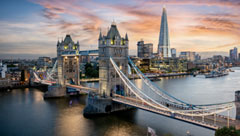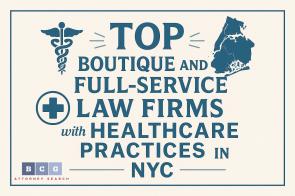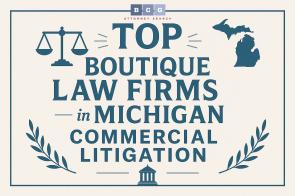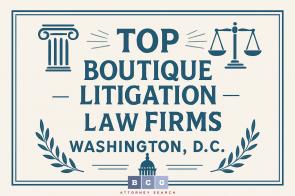- Legal Recruiter ➝
- Major Legal Market ➝
- England - London
Legal Recruiter London, England

125 Park Ave, FL 25 New York , NY, 10017-5550
212-232-0277
800-298-6440 (toll-free)
212-232-0111 (fax)
About London, England
London--home of old pubs, lawyers with wigs, and (yes) great food.
London roared into the twenty-first century fueled by cutting-edge music, a solid economy, and some surprisingly tasty new restaurants. But much of what makes London, well, London, is its history--ancient pubs, charmingly stuffy traditions, time-honored politeness, and, of course, that guy who wrote the plays. We're happy to report that like most everything they do, from keeping time for the rest of the world to making pop music, Londoners have handled their modernization fastidiously and cheerfully.
A perfect example of the bridge from old to new (literally): the Gatehead Millennium Bridge, built over a decade ago to connect 295-year-old St. Paul's Cathedral to the Tate Modern gallery. It's the perfect architectural addition to a city in which the upper crust is as fusty as ever and the hipsters are cooler than most people ever will be. As for the lawyers, they're busy enough to keep themselves in tailored suits, but not so strapped that they can't enjoy London's thoroughly modern brand of fun.
HOT JOBS
American firms have a long history in London. DAVIS POLK & WARDWELL's largest presence outside the U.S. is here and most major New York and West Coast firms have at least some presence here. London, of course, has the Magic Circle firms - all of which have openings now and then for American-educated corporate attorneys.
HOT HOODS
- NOTTING HILL remains a luxurious bohemia where grand Georgian houses preside over a colorful street life (a carnival arrives each August).
- THE CITY, London's financial center and one of its oldest sections, is where many lawyers settle down in renovated lofts. For prestige, check out BELGRAVIA'S massive white town houses near the fashionable Sloane Square and Chelsea neighborhoods.
HOT TICKETS
The BARBICAN is home to the LONDON SYMPHONY ORCHESTRA.
HOT BARS AND PUBS
Eclectic decor (a crystal chandelier from a Cannes casino, a stuffed marlin, Victorian street lamps, 1960s coffee tables and fetchingly named cocktails Part-Time Lover, Endless Lover, Tainted Lover) made LOUNGELOVER instantly popular when it opened its doors in April. Of London's hundreds of pubs, THE SEVEN STARS is one of the oldest (it was built in 1602) and features Real Ale and a mixed crowd of professionals and artists. ST. JOHN BREAD & WINE, housed in a former bank in the financial district, offers more than 50 wines.
HOT GALLERIES
The contemporary art scene in London is among the most vibrant and active in Europe. A former government building along the Thames was transformed into the new SAATCHI GALLERY. Its collection includes works by British favorites Tracey Emin and Damien Hirst.
Most galleries are housed in the city's Shoreditch section.
HOT SHOPPING
BOND STREET is one of the city's chicest fashion stretches: Gucci, Versace, Burberry, the rest. Local design darling STELLA MCCARTNEY'S flagship store is on nearby Bruton Street.
SELFRIDGES department store carries the best small labels, like Fake London and Antoni & Alison, alongside Paul Smith and Dior.
LIBERTY'S traditional prints are worn by well-appointed lawyers worldwide, and the label's lesser-known modern lines also are worth a look. Hunt for antiques on PORTOBELLO ROAD. On Fridays and Saturdays, stock up on British specialties like pork pies and Neal's Yard cheeses at the open-air BOROUGH MARKET.
HOT RESTAURANTS
For classic French cooking, ring up RACINE. At FIFTEEN, you can taste whatever Chef Jamie Oliver is concocting (our recent pick: line-caught sea bass steamed with courgettes, Florence fennel and radicchio de treviso).
Europe continues to dominate the international legal scene. The growing membership of the European Union (most recently with the accession of 10 new member states from Central and Eastern Europe) has provided increased economic stability that will enable firms to expand their practices in markets beyond Western Europe, and many are looking to add more U.S.-, U.K.-, and dual-qualified attorneys to their European offices. Moreover, the attractiveness of living abroad and gaining international market experience for many American attorneys draws them in significant numbers to the legal markets in London, Frankfurt, Paris, and beyond.
The London market continues to offer the vast majority of opportunities for U.S.-qualified corporate attorneys with solid transactional experience. American attorneys are also often attracted to London, as they can gain significant international experience doing cross-border transactions with clients and attorneys in other European and Asian countries, while living day-to-day in a city where life is similar to that of any large American city. In fact, some U.K.-based firms have designated U.S. corporate practice groups, comprised of U.S.-qualified attorneys working for the firm's European clients doing business in the States. Thus, London is the best of both worlds for the American attorney: the opportunity to work in an environment with a shared language and with colleagues of similar backgrounds, while living in the dynamic, multicultural environment London offers.
Outside London, there are fewer opportunities for U.S.-qualified practitioners, although candidates with dual U.S. and U.K. qualifications have more marketability. Frankfurt still draws a number of U.S.- and U.K.-qualified attorneys with experience in banking and capital markets, as it is home to the European Central Bank. Brussels continues to be the focal point for antitrust and E.U. regulatory practices, although local language skills and qualification are often required. Central and Eastern Europe, including Russia, also offer terrific opportunities for attorneys interested in energy and projects, but frequently require some experience or connection to the region.
Currently, most European firms are looking for mid-level associates with 3-5 years of experience in a corporate practice at a large, well-respected U.S. or U.K. firm. Excellent academics and meaningful experience in capital markets, securities, project finance, and M&A are essential. Candidates should be fluent in the local language, as well as in English, and some firms, such as those in Geneva or Brussels, often require a third local language (i.e., French or German). Smaller markets-such as Paris, Amsterdam, Rome, and Moscow-commonly require candidates to be admitted to practice in the local region. Law firms in London generally permit candidates who are admitted in the U.S., particularly New York. In sum, Europe offers exciting opportunities for candidates with excellent credentials and solid experience.
England - London Attorney Jobs
View All JobsStructured Finance Associate
United Kingdom - London - London
A prestigious law firm in London, UK, is seeking a mid-level associate (4-6 PQE) with expertise in structured finance. The ideal candidate will have substantial experience working with collateralized loan obligations (CLOs), asset-backed securities (ABS),
Structured Finance Associate
United Kingdom - London - London
A prestigious law firm in London, UK, is seeking a Structured Finance Associate to join its dynamic team. This exciting opportunity is ideal for a junior associate who has completed a two-year English training contract and is 1-3 years qualified. The firm is par....
Junior Associate - International Arbitration
United Kingdom - London - London
A law firm seeks a motivated Junior Associate to join its London office, specializing in international arbitration. This entry-level position is designed for a recent graduate or early-career attorney with a passion for dispute resolution and a desire to develop their skills in high-value arbitration cases. The successful candidate will work clo....
Recent Posts
Search Attorney Jobs
Additional Actions
Featured Jobs
- Litigation Attorney
Location: Texas - San Antonio
- Workers' Compensation Attorney
Location: Pennsylvania - Allentown
- Bilingual Immigration Attorney
Location: Massachusetts - Boston
Upload Your Resume
Upload your resume to receive matching jobs at top law firms in your inbox.
Additional Resources
BCG Reviews
They were very good about scheduling the calls, getting the process rolling. I started working with someone who was in C....Read more >
[My favorite things about working with BCG and Sarah] was the weekly updates on how things were going. Sarah was also ve....Read more >
[I like how BCG] took the lead, and got everything done. [It was] a stress and hassle free process. You handled all the ....Read more >
Joseph Valdivia
Notre Dame Law School, Class Of 2013
Placed at Akerman LLP.My favorite aspect of working with the entire BCG team was the array of helpful resources that they shared with me. Whet....Read more >
Jonathan Berry-Smith
Stanford University Law School, Class of 2018Brian is an incredible, very effective team! They moved the process along quickly and were extremely responsive to all m....Read more >
Lindsay Docto
Boalt, Class Of 2015
Placed at Skadden, Arps, Slate, Meagher & Flom LLPMy favorite thing about working with BCG Attorney Search was the comprehensiveness of the number of law firms that they ....Read more >
Connor Robert McKinney
Columbia University School of Law, Class Of 2017
Placed at Brewer Attorneys & CounselorsPopular Articles by Harrison Barnes
- Top Law Firms in New York City with Strong Healthcare Practices
- Top Boutique Law Firms in Michigan Specializing in Sophisticated Commercial Litigation
- Top Boutique Litigation Law Firms in Washington, D.C.
- Top Intellectual Property Litigation Firms in Pennsylvania
- Unlocking the Future of Legal Work: Your Comprehensive Guide to Landing Remote Attorney Jobs with BCG Attorney Search
Helpful Links
- The BCG Attorney Search Guide to Basic Law Firm Economics and the Billable Hour: What Every Attorney Needs to Understand to Get Ahead
- Quick Reference Guide to Practice Areas
- Refer BCG Attorney Search to a Friend
- BCG Attorney Search Core Values
- Recent BCG Attorney Search Placements
- What Makes a World Class Legal Recruiter
- What Makes BCG Attorney Search The Greatest Recruiting Firm in the World
- Top 10 Characteristics of Superstar Associates Who Make Partner
- Off-the-Record Interview Tips From Law Firm Interviewers
- Relocating Overseas
- Writing Samples: Top-12 Frequently Asked Questions
- The 'Dark Side' of Going In-house
- "Waive" Goodbye To Taking Another Bar Exam: Typical Requirements and Tips to Effectively Manage the Waive-in Process
- Changing Your Practice Area
- Moving Your Career to Another City
- A Comprehensive Guide to Working with a Legal Recruiter
- A Comprehensive Guide to Bar Reciprocity: What States Have Reciprocity for Lawyers and Allow You to Waive into The Bar
What Our Readers Are Saying
- Thanks, Harrison. I truly enjoy reading your work. You are a thought leader and I love your confidence and swagger. Paul G.
- I really enjoyed your article titled "The Top Reasons Why Money Is the Dumbest Thing Any Attorney Should Focus on When Joining a Law Firm." It was relatable, inspiring and definitely worth breaking through the short attention span that plagues us today (especially when it comes to articles online). Thanks for sharing your thoughts. Dani
- Harrison, You are creating some inspired content. Thank you for sharing these detailed and totally genuine insights. I really look forward to reading everything you have to say and want to urge you to keep up the great work. Jason Riddick
- Harrison Barnes you're a genius. Who writes your articles? They're so right on! I've been reading your work of art for so long I can't remember when I started. Practicing for over 25 years your words are gospel to lawyers. Thank you and keep it up. Michele M. Volpe Bershtein, Volpe & McKeon P.C.
- As I start my transition from BigLaw to solo practitioner, I stumbled on one of your articles and after just reading the first couple of lines I could not stop [until the] end. Great, eye-opening read. Thanks. Gustavo Laborde Shearman & Sterling LLP


